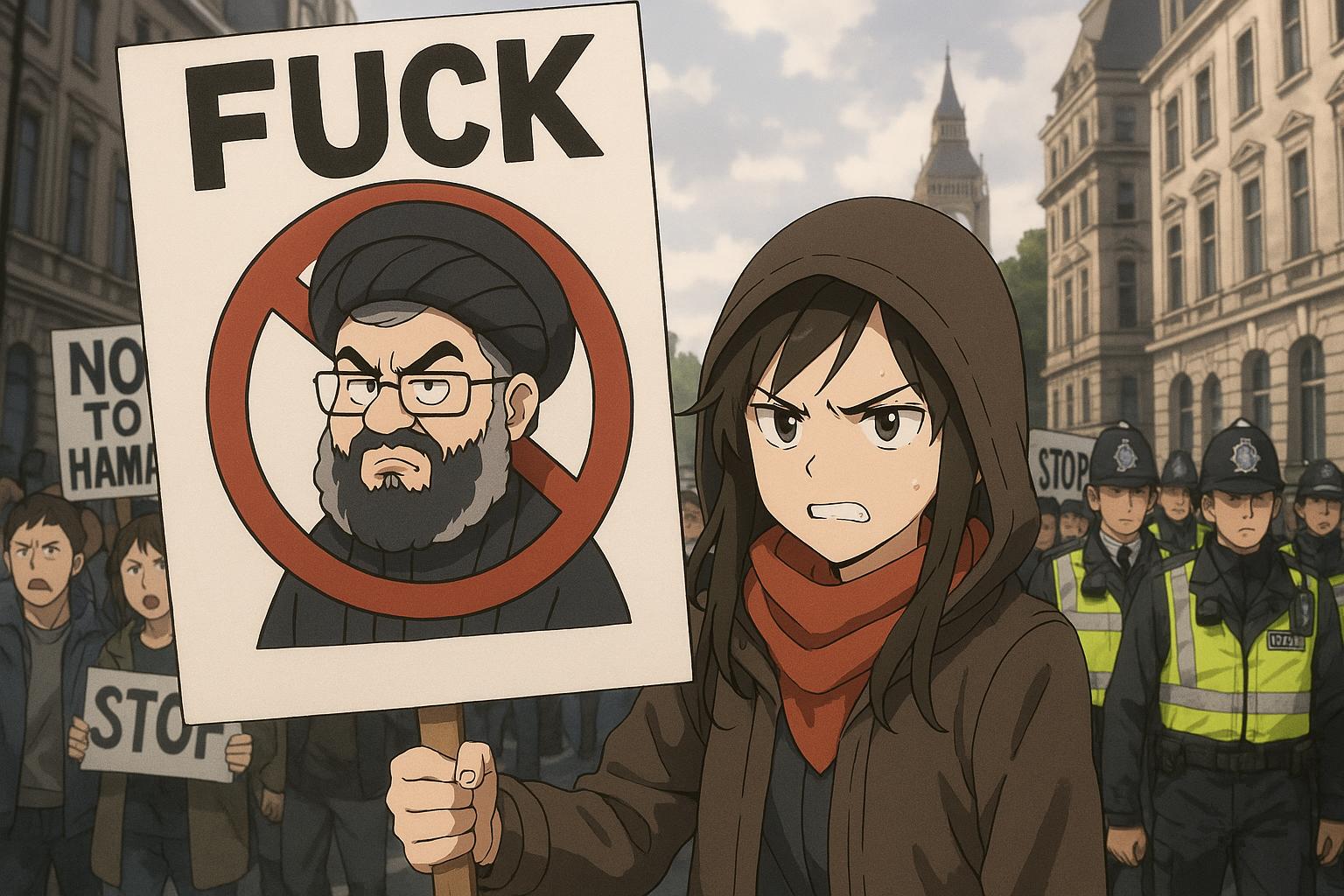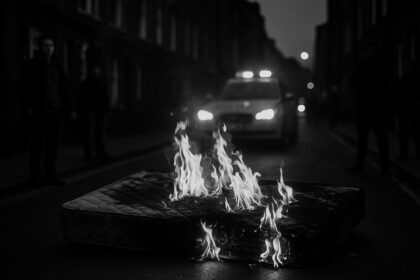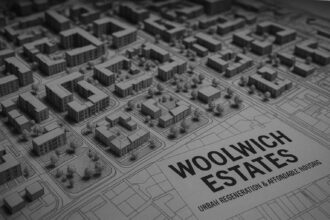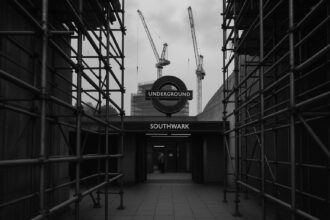A Jewish man was charged with racially aggravated harassment for displaying an anti-Hezbollah placard at a London counter-protest, sparking wider discussions on police judgment and the balance between free speech and hate crime enforcement during politically sensitive demonstrations.
A recent incident during a counter-protest in London has ignited significant debate about racial sensitivity and police responses in the context of ongoing tensions surrounding the Israel-Palestine conflict. A Jewish man was charged with “racially aggravated harassment” after displaying a provocative placard depicting Hassan Nasrallah, the leader of Hezbollah. This demonstration occurred on September 20 last year in Swiss Cottage, where the man participated in a Stop the Hate counter-protest targeted at a pro-Palestine march.
The placard, which featured a drawing of Nasrallah with a pager and the words “beep, beep, beep”, referenced a historical Israeli military operation known as Operation Grim Beeper, carried out against Hezbollah. This military action resulted in significant casualties, amplifying its sensitivity. In the published police interview footage, the arresting officer questioned whether the image could incite further racial hatred among the pro-Palestine demonstrators. The man’s lawyer challenged this notion, questioning the labeling of these demonstrators as pro-Hezbollah, highlighting the complexities of defining political expression within the framework of law.
In a reaction that reflects broader societal views, the protester expressed disbelief over the police’s interpretation of his placard as potentially offensive. “It beggars belief that police could think that this placard may be offensive to supporters of Hezbollah,” he remarked, arguing that charges should be levied against any Hezbollah supporters present rather than against him for what he considers political satire. This sentiment echoes in the wider community, as the police are increasingly under scrutiny for their handling of politically charged protests.
Following the incident, the Crown Prosecution Service (CPS) ultimately dropped the charges on May 10, citing insufficient evidence to pursue a conviction, which raises questions about the police’s initial judgement and the effectiveness of their response protocols. The Met Police acknowledged that the officer had misspoken during the interview when referring to the demonstrators and committed to reflecting on the CPS’s decision to refine their approach in similar future engagements.
This case is not isolated; it highlights the challenges facing law enforcement in a politically charged climate. The Met Police have faced criticism for their conduct at other protests, with various incidents highlighting a perceived lack of clarity regarding the law around proscribed organisations like Hezbollah. Public sentiment remains divided as demonstrators continue to rally for their causes amid concerns of rising antisemitism. Recent pro-Palestine marches have seen extensive participation and similarly showcased complex interactions between protesters of varying backgrounds.
The Home Secretary has emphasized that promoting Hezbollah, a proscribed group, constitutes a criminal offence. Public records show numerous arrests at recent demonstrations for related offences, indicating a heightened vigilance from authorities. Nevertheless, the delicate balance between protecting free speech and preventing racial or religious hatred remains a contentious issue, particularly amplified in light of the significant protests and counter-protests witnessed across the UK since October last year.
As debates continue regarding policing and public safety in the context of these protests, the pathway to harmony necessitates thoughtful engagement from both the community and law enforcement. There is a pressing need for clarity and sensitivity, considering the profound historical and emotional weight carried by symbols and statements associated with the Israel-Palestine conflict. With tensions still palpable, the question remains as to how society can navigate these discussions without further polarising an already divided public.
In light of these difficulties, effective policing that balances the need for public order with the protection of individual rights is critical. The ongoing scrutiny of the Met Police’s handling of such situations underlines a societal desire for accountability and better communication of the laws governing political expression. As this conversation unfolds, it is essential that all parties strive for understanding and cooperation to address the pressing issues at hand.
Reference Map:
Source: Noah Wire Services
- https://m.belfasttelegraph.co.uk/news/uk/jewish-protester-charged-with-racial-harassment-over-anti-hezbollah-sign/a610354848.html – Please view link – unable to able to access data
- https://www.bbc.com/news/uk-england-london-67115772 – A 67-year-old man was charged with intentionally causing racially aggravated harassment, alarm, or distress after allegedly making racist remarks at a pro-Palestine march in London. The incident occurred in Whitehall, where the man was arrested for shouting racial abuse at protesters and a police officer. He was in possession of a UK flag, which was not the reason for his arrest. The man is scheduled to appear at Westminster Magistrates Court on November 2.
- https://www.jpost.com/diaspora/antisemitism/article-795688 – During the annual al-Quds Day rally in London, a pro-Palestine activist was questioned by police for carrying placards depicting images of Hitler morphing into Prime Minister Benjamin Netanyahu, labeled ‘the irony of becoming what you once hated.’ The activist was stopped by police but released after 10 minutes, allowing him to rejoin the protest. The Metropolitan Police stated that if such placards were displayed in the crowd, action would be taken.
- https://www.gbnews.com/news/met-police-hezbollah-terrorist-sparks-fury-protest – A Metropolitan Police officer faced criticism for failing to acknowledge that Hezbollah is a proscribed terrorist organization during a pro-Palestinian protest in London. When a bystander informed the officer about Hezbollah’s status, the officer responded, ‘Your opinion is your opinion.’ Another officer admitted to lacking political interest and confused the leader of Lebanon with the leader of Hezbollah. The incident sparked outrage, and the Met Police stated they would ensure officers fully understand briefings on proscribed groups.
- https://www.independent.co.uk/news/uk/hamas-hezbollah-government-met-london-b2624588.html – The UK government supported police action against displays of support for Hezbollah during pro-Palestinian protests in London. Home Secretary Yvette Cooper emphasized that promoting Hezbollah, a proscribed terrorist organization, is a criminal offense in Britain. The police made 17 arrests during the demonstrations, which marked the anniversary of the October 7 attacks in Israel. The government reaffirmed its commitment to taking action against individuals supporting proscribed groups.
- https://www.foxnews.com/world/outrage-pro-hamas-protest-london-cop-threatens-man-arrest-openly-jewish-appearance – During a pro-Palestinian protest in London, a Metropolitan Police officer threatened to arrest an openly Jewish man for his appearance, suggesting it might provoke demonstrators. The incident raised concerns about police conduct and the safety of Jewish individuals during such protests. The officer’s actions were widely criticized, and the Metropolitan Police stated they would reflect on the incident and ensure officers are properly briefed on handling such situations.
- https://news.sky.com/story/man-arrested-on-suspicion-of-inciting-racial-hatred-after-london-pro-palestine-march-12990641 – A man was arrested on suspicion of inciting racial hatred after a pro-Palestine march in London. The Metropolitan Police stated that the man filmed shouting racist abuse in Whitehall. Approximately 100,000 demonstrators gathered in the capital to show solidarity for Palestine and demand an end to Israel’s bombardment of Gaza. The protest was largely peaceful, with ten arrests made for various offenses, including firework-related offenses and assaulting an emergency worker.













